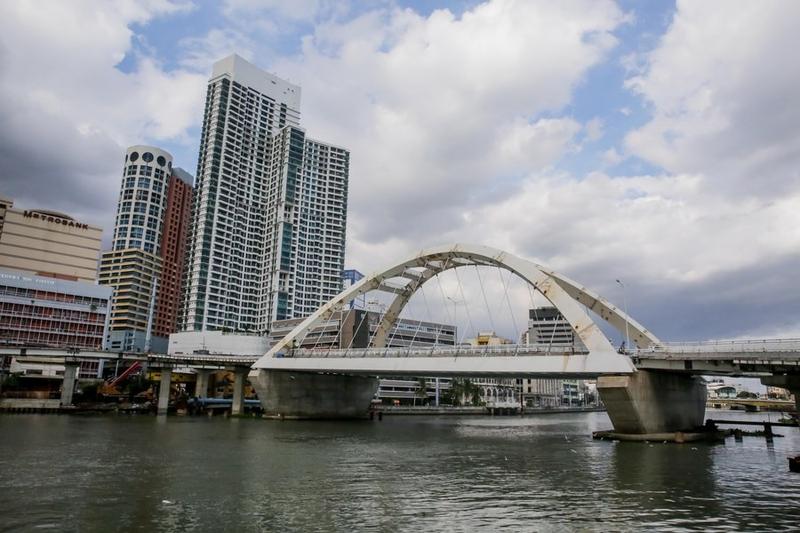 The China-funded Binondo-Intramuros Bridge is under construction in Manila, the Philippines on March 3, 2022. (ROUELLE UMALI)
The China-funded Binondo-Intramuros Bridge is under construction in Manila, the Philippines on March 3, 2022. (ROUELLE UMALI)
DAVAO - A China-funded bridge that connects the Philippines' third largest city Davao and a tourist island will help boost tourism and economic growth in the country's southern region, said President Ferdinand Romualdez Marcos on Thursday at the project's groundbreaking ceremony.
The ceremony kicked off the construction of the 3.81-km two-way, four-lane Samal Island-Davao City Connector Bridge that will ease the access for tourists to the Island Garden City of Samal.
Once completed, this bridge will help us develop the economic potential of Davao City and the Island Garden City of Samal, as well as enhance local residents' access to employment, education, and other services, Marcos said
Once completed, this bridge will help us develop the economic potential of Davao City and the Island Garden City of Samal, as well as enhance local residents' access to employment, education, and other services, Marcos said.
ALSO READ: China, Philippines agree to usher in 'golden age' in bilateral ties
Famous for pristine beaches, snorkeling and diving sites, the Island Garden City of Samal is one of top tourist spots and a tropical getaway for tourists. Without the bridge, the island can be reached only by ferry from Davao City.
Marcos thanked the Chinese government for being a "dependable partner in this infrastructure development program."
"It is clear to see the benefits that those projects bring to our people, our economy and the Philippines," he said, adding the latest bridge project is "a testament to the strong and ever-growing foundation of bilateral relations and cooperation between our two countries."
READ MORE: Marcos: Philippines ready to take lead in ASEAN peacekeeping
"It is always a pleasure as a nation to join hands with you for the eventual success of this endeavor," Marcos said, adding that he is looking forward to continuing to strengthen bilateral ties.
The bridge, projected to be completed in 2027, can accommodate up to 25,000 vehicles daily and reduce travel time between Samal and Davao City from 50 minutes to less than five minutes.
"The bridge will ensure the mobility of people and goods. It will provide easier access to tourism spots and ensure the speedy recuperation from the setbacks brought about by the pandemic," Marcos added.
Philippine Vice President and former Davao mayor Sara Duterte, and Chinese Ambassador to the Philippines Huang Xilian also attended the ceremony.
The Chinese envoy reaffirmed China's firm commitment to support the infrastructure program of the Philippines, saying this bridge will serve as "a new passage to a better livelihood of the local people" and a significant milestone in bilateral cooperation.
"China is ready to work with the Philippine side to strengthen our ties as close neighbors, good relatives and friendly partners, further our cooperation in agriculture, infrastructure, energy and people-to-people exchange, so as to bring more tangible benefits to our peoples," Huang said.


